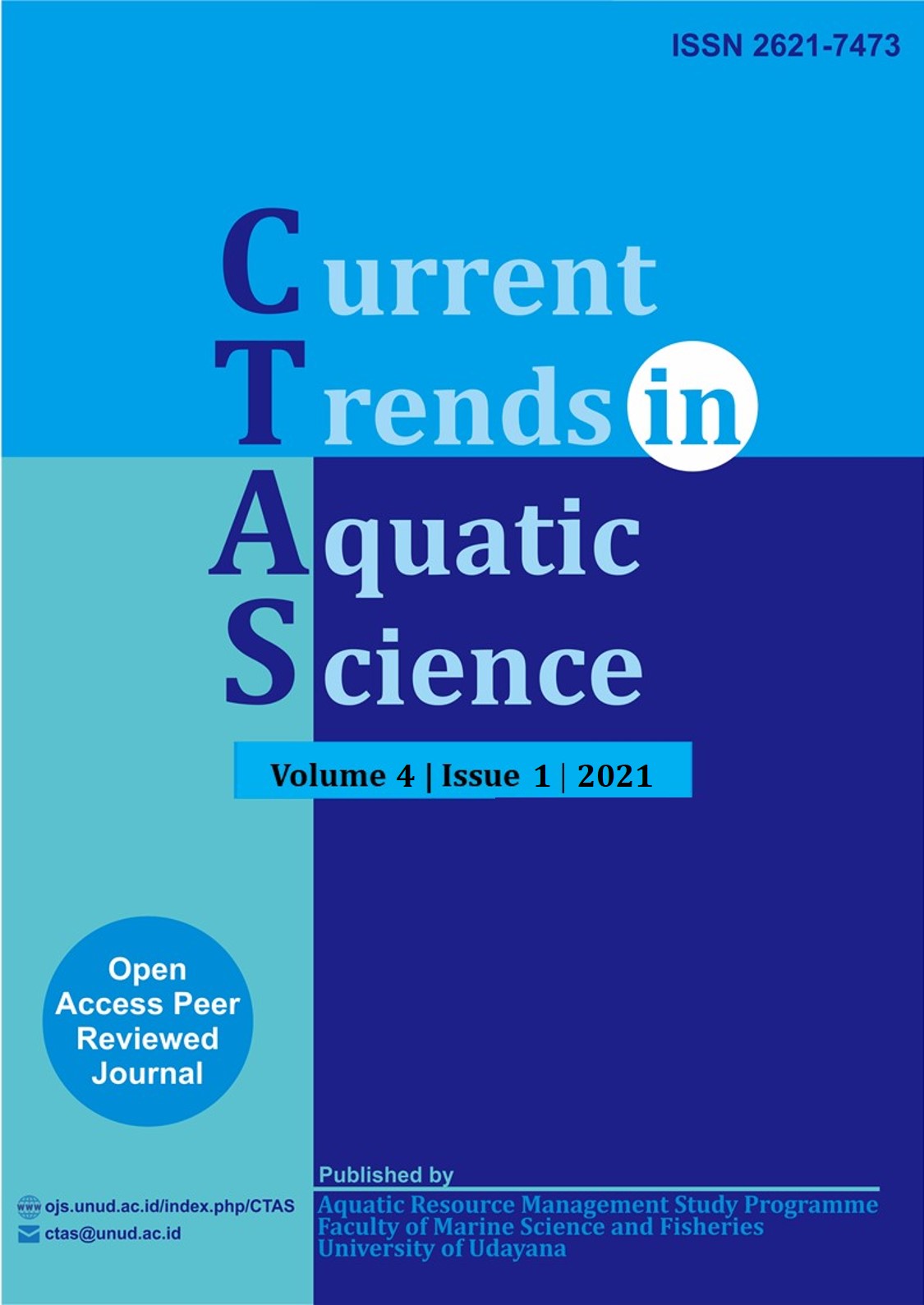Fluktuasi Kualitas Air Budidaya Ikan Nila (Oreochromis niloticus) dengan Beberapa Variasi Sistem Resirkulasi
Abstract
Water quality has considerable influence on the survival rate and growth of Tilapia in aquaculture waters. Good environment is required for fish growth and survival rate. Recirculation aquaculture system can be used to maintain the optimal quality of water during fish maintenance. The working principle of recirculation system is reuse water repeatedly so the temperature, oxygen and other distributions more evenly distributed. This research aims to determine the water quality fluctuation that occurs in aquaculture of Tilapia with unfiltered recirculation system (control), biofilters system (bioball) and aquaculture system (using water spinach and pakchoy). The measured water quality parameters include temperature, potential hidrogen (pH), dissolved oxygen (DO), turbidity and total dissolved solids (TDS). The results of six repetitions on control treatment, biofilter treatment and aquaponic treatment showed pH values range from 7-8, dissolved oxygen from 6-8.5 ppm, temperature from 28-30 ° C, total dissolved solid from 250- 500 ppm, and turbidity values range from 0.5 to 6 NTU. The statistic result showed significant differences (P<0,05), between parameters for temperature, pH, dissolved oxygen, and turbidity, while parameter total dissolved solids there were no significant differences (P>0,05). The best water quality results showed for aquaponic treatment because values of water quality tend to be stable for fish growth.


